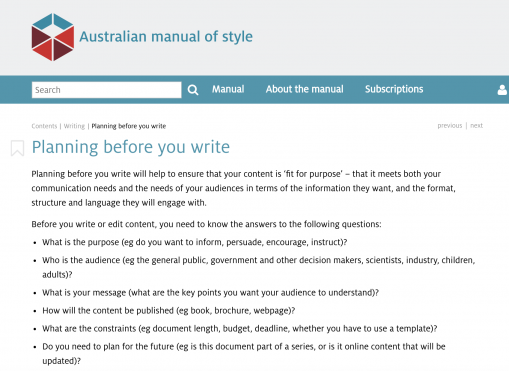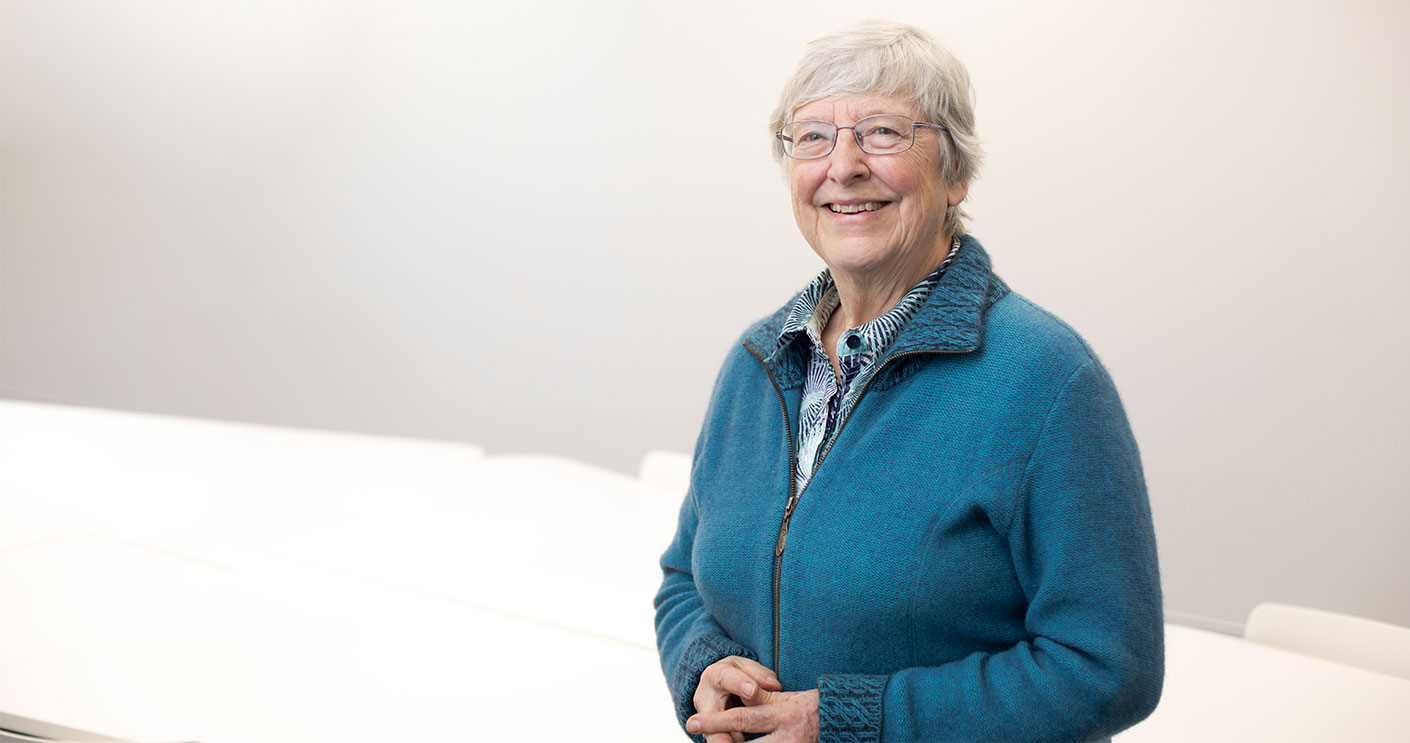When you visit Pam Peters’ office at 12 Second Way, you can’t help but notice the impressive line up of books and journals on the bookshelf, many of which would be considered bibles of Australian English.
There’s multiple editions of the Macquarie Dictionary, of course (Pam sat on its Editorial Committee from 1986 to 2006). There’s the Cambridge Australian English Style Guide (1995) and follow ups including the Cambridge Guide to Australian English Usage (2007). And stacks and stacks of issues of Australian Style – the must-read bulletin that Pam edited for 16 years.
Then there’s impressive array of what Pam calls ‘computerised corpora’: specialised online databases for researching Australian English. And the online ‘termbanks’ like HealthTermFinder and LawTermFinder that Pam has helped curate to provide ordinary Australians – particularly those from non-English speaking backgrounds – with simple explanations for complex medical, scientific and legal terminology.
Looking at all this, it’s not hard to see why Macquarie has such an outstanding reputation for linguistics (and why we ranked 27th in the world in this discipline in the 2021 QS subject rankings). So how does Pam feel when she looks around at her printed legacy?
“When I look at these publications, I reflect on the wonderous opportunities they represent,” she says. “Here I was, teaching and just doing the ordinary things an academic does, and then there were all these research frontiers that were so interesting to me.”
And despite officially retiring in 2007, Pam has not slowed down when it comes to her passion for researching language. In fact, Pam has embraced her status as an Emeritus Professor – a title bestowed on highly accomplished Macquarie academics in retirement – by delving into more and more exciting projects.
“The thing that hit me when I retired is that I hadn’t changed, and I had a lot of unfinished business,” Pam says. “I was still in touch with so many people who were active in research and offering me opportunities to do things. It seemed almost a crime to stop!
“For me, the role of Emeritus Professor is about maintaining the energy that I developed over a career. I may have hopped off the teaching treadmill but the stimulus of language remains all around me every day – you still can’t take me to a restaurant without me picking the menu apart,” she laughs.
 Much of Pam’s recent energy has gone into the recent launch of the Australian Manual of Style (or AMOS) – a comprehensive online guide that provides practical advice for anyone who writes, edits or designs content.
Much of Pam’s recent energy has gone into the recent launch of the Australian Manual of Style (or AMOS) – a comprehensive online guide that provides practical advice for anyone who writes, edits or designs content.
With controversy around the public service’s long-revered Style Manual now being produced by the Digital Transformation Agency, Pam sees AMOS as the new ‘must have’ manual for good writing.
“Being fully online and produced by publishers and researchers who are committed to keeping it regularly updated – AMOS is a really exciting resource.”
Sounds like it’s time to make some more room on that legacy bookshelf.
Macquarie staff and students can access the Australian Manual of Style via the Macquarie University Library.


 Back to homepage
Back to homepage
My Australian daughter in law sent me the link by email with the comment ” I thought of you.” I retired in 1996 and as an emeritus professor (organic chemistry), and I still had a small number of research student collaborators. And so for a little over twenty years I have continued working and collaborating with younger colleagues. I have continued to have fun keeping my brain active, and publishing new research results. If it makes for a good life , then why not continue: but it might not be for all academics.
Witnessing the evolution of one’s discipline first-hand – is another pleasure in non-retirement.